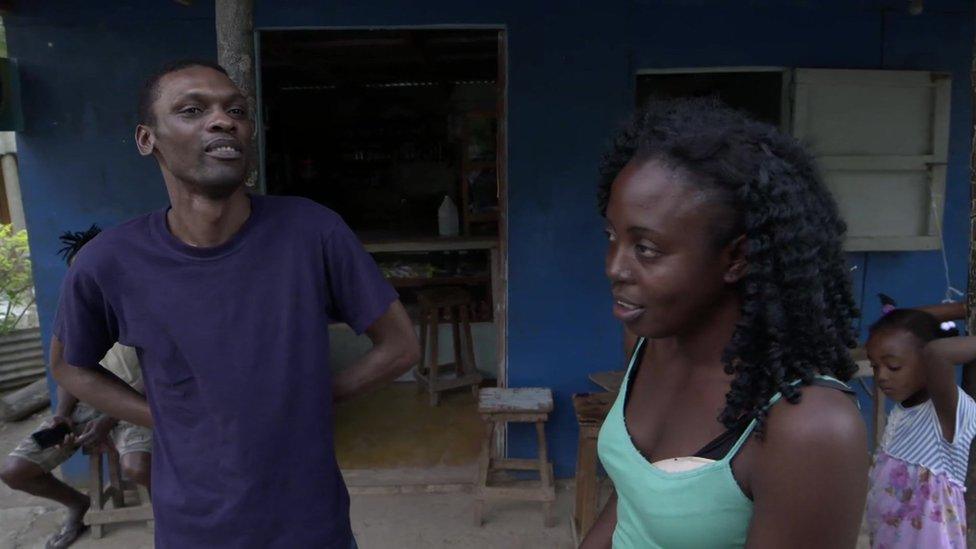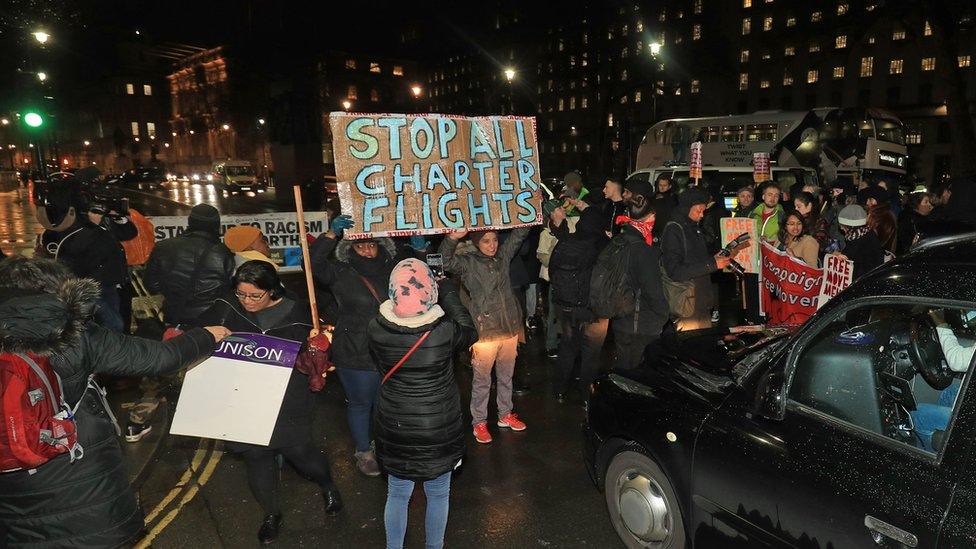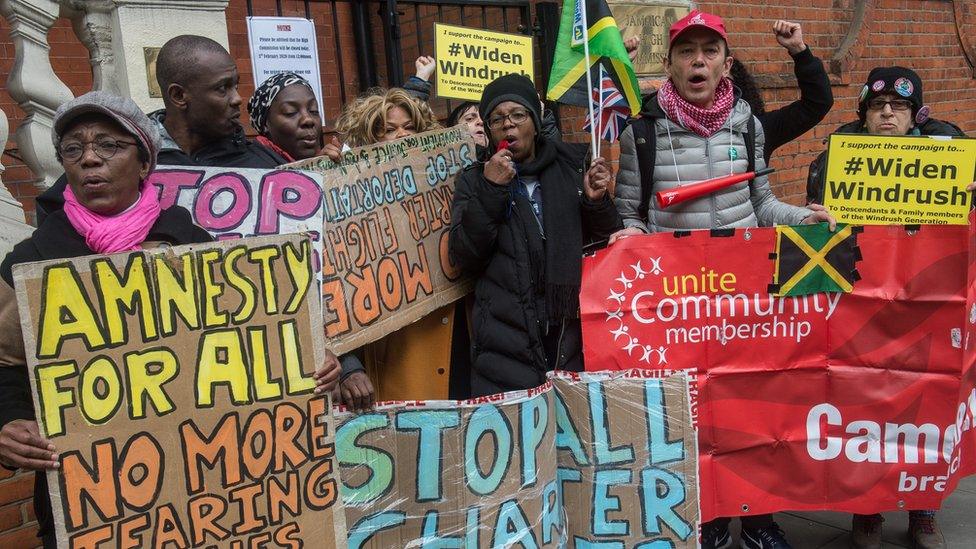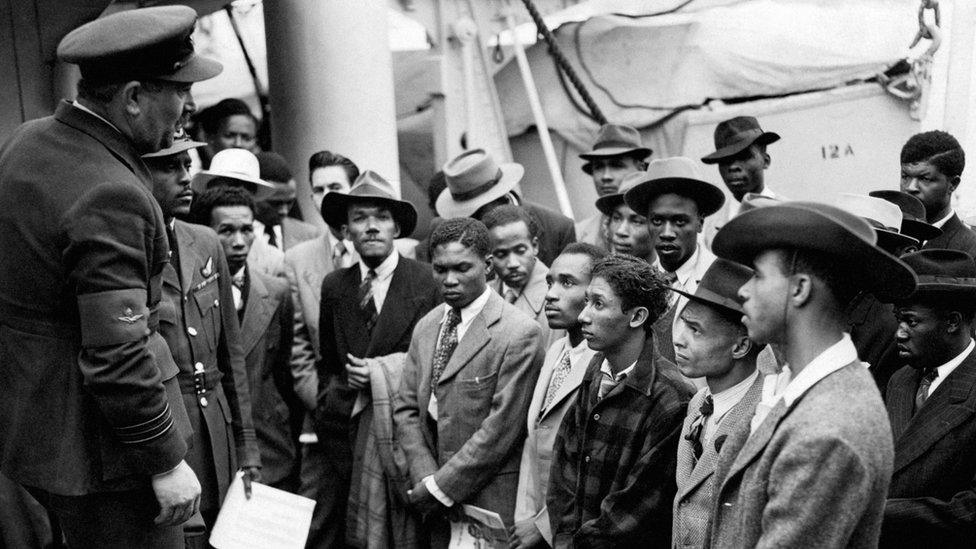Jamaica deportation: 'I feel I was punished twice when I was deported'
- Published
Rayan was deported to Jamaica after being convicted for burglary
Amid controversy and protests, 17 convicted offenders - many of them living in the UK since childhood - were deported to Jamaica. BBC Newsnight has been following their stories.
"If somebody commits a crime and they went to prison for it, and they've been rehabilitated, why would you punish them again by deporting them to Jamaica?" says Rayan Crawford.
Mr Crawford had not set foot in Jamaica since he was 12 years old, he says. Now 34, he is living there at the house of his sister Yanique after being deported from the UK.
Back home in Bow, east London, he has a partner of 14 years, Jana, as well as two boys aged three and 12.
He served 12 months in prison after he was convicted of burglary in 2017. Then, on 27 January, 10 officials detained him at his home.
He and 16 others were flown out of the UK on Monday, designated as "serious foreign national offenders" by the government.
The Home Office said those detained included people convicted of manslaughter and rape, and all of them had their cases "fully reviewed" to ensure there were no legal barriers to their removal.
It said Mr Crawford was convicted 10 times for a total of 22 offences, including the burglary.
"We make no apology whatsoever for seeking to remove dangerous foreign criminals," a spokesman said.
But Mr Crawford says his deportation did not make anyone safer. "I regret what I've done, but I don't think I'm a danger to the public," he says.

"Where am I going to go from here?" says Mr Crawford, back in Jamaica for the first time in 22 years
MPs and campaigners said the government was risking another Windrush scandal, in which the children of Commonwealth citizens were threatened with deportation despite living in the UK for decades.
A leaked report into the scandal, revealed by Newsnight last week, recommended that the UK stop deporting people who had arrived in the UK as children or reserve deportation for the most serious cases.
Under both of these tests it would be unlikely that Rayan Crawford would be eligible for deportation.
'I was panicking, crying'
Mr Crawford says he voted for Boris Johnson and thought he was going to be a good prime minister, but believes the law around deportation needs to be re-examined.
"I feel British," he says. "I've been there from a child. I went to school there, I went to college there. I spent my whole life there."
His belongings are still in the UK, he adds, with a plastic bag containing two pairs of jeans being all he could bring with him.
Mr Crawford, who has inflammatory arthritis and the bone disorder Blount's disease, says he was also made to leave without his medication.
Rupert Smith, one of 17 convicted offenders deported to Jamaica says he has "had his life taken away"
He says officials told him if he did not have the medication for his arthritis with him when he was detained, they could not give it to him.
"I thought I was going to have a heart attack, I was panicking so much I started getting pain in my chest. Even on the plane I was crying. My back was killing me so much I was crying."
The Home Office said individuals were assessed to establish they were medically fit to fly.
It said they travelled on the removal flights with their medical notes and those with pre-existing conditions were brought to the attention of accompanying medical staff.
Mr Crawford believes the medication he needs is not available in Jamaica. He adds that he had been told in detention he could not access the medication without doctors' reports.
Now he does not know what the future holds.
"There's nothing around here to do. There's no work to do or anything. Even finding somewhere to stay - I don't know how long I can stay here. Where am I going to go from here?"
- Published11 February 2020

- Published7 February 2020

- Published7 February 2020
